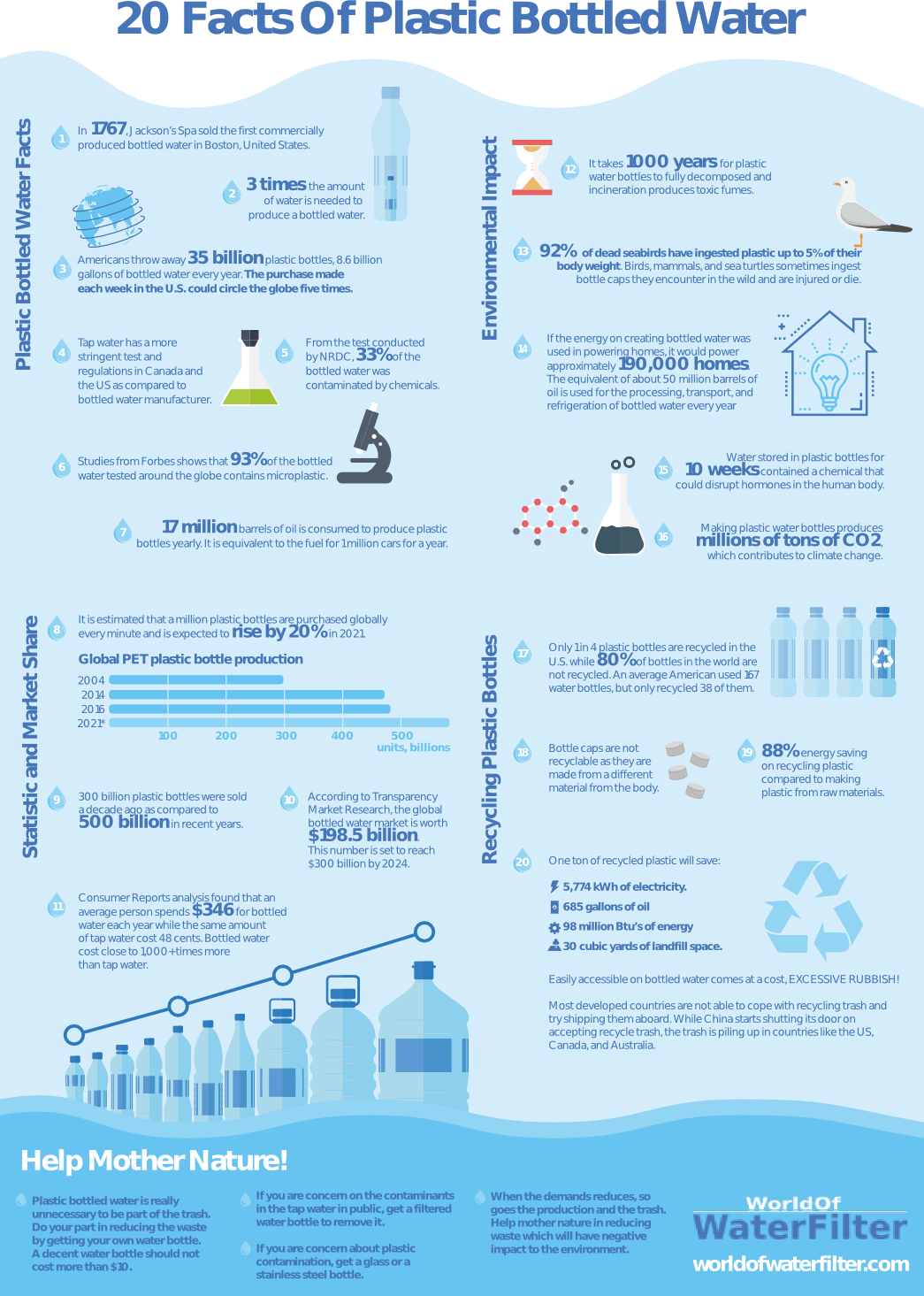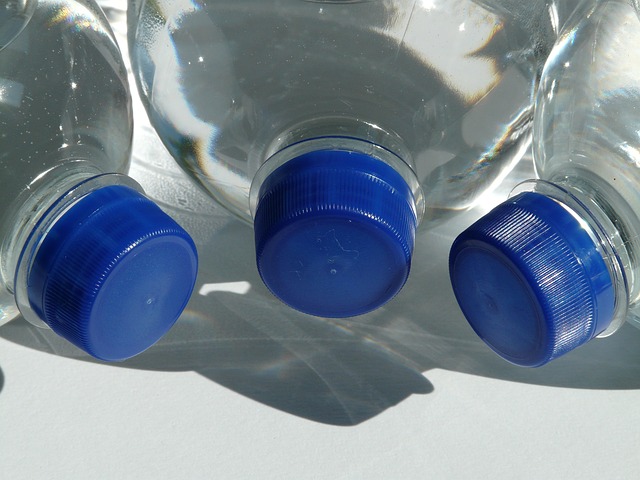Plastic Bottled Water
***Note from publisher: Michael R. Craig
I feel the 2 biggest concerns regarding our future on EARTH are: Plastic and Population!
The concept of the bottled water has been around for over two centuries. When plastic was invented, the world saw a rise in the production of plastic bottled water because it is convenient.
Most of all, the price of each unit is relatively cheap, making it easy for people to buy and consume it. However, the lack of regulatory controls has raised questions regarding its safety for consumers.
In recent years, researchers found that most of the plastic bottled water contains microplastic. The industry wasn’t heavily regulated as compared to tap water.
On top of that, the massive numbers of plastic bottled water produced and sold each year have raised concerns regarding the impact of these plastic bottles on the environment. The lifetime cost for each plastic bottle is far greater than we could imagine.
Climate change has become serious in the recent years where winters gets freezing cold and summer is getting hotter. Producing plastic water bottles are one of the key contributor.
20 Facts Of Plastic Bottled Water
This infographic talks about 20 interesting facts regarding plastic bottled water, which ordinary people don’t think about on a daily basis.
Actually, because of the conspicuous human consumption of this plastic bottle water, it should be a requirement for each individual to learn more about this product that they regularly reach for and can’t seem to live without.
This infographic tackles interesting facts on plastic bottled water such as 3x the amount of water it contains is what is needed to produce one plastic bottle of water. It also discusses the statistics of the product, including its market share.
More importantly, it focuses on the environmental impacts of the proliferation of the use of plastic bottled water, along with the possible benefits that the world can see from recycling this product.

***Infographic originated from WorldofWaterFilter.
 WhosGreenOnline.com Your Online Magazine and Directory for Green Business, Product, Service and News!
WhosGreenOnline.com Your Online Magazine and Directory for Green Business, Product, Service and News!







One comment
Pingback: Opportunity lies in every crisis | WhosGreenOnline.com